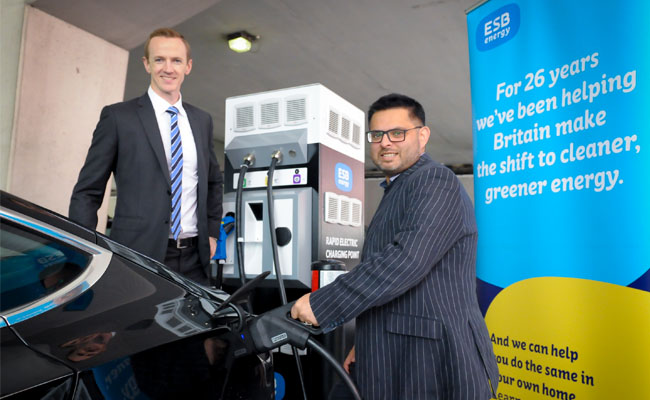Birmingham City Council Cabinet agrees 12-year electric vehicle strategy

Birmingham: Electric vehicle charge-points will appear in greater numbers and at strategic locations across Birmingham because, today, the city council has accepted a 12-year electric vehicle strategy that will contribute to meeting its net-zero target by 2030.
The rollout of more than 3,000 electric vehicle charge-points across Birmingham is predicted to contribute to around 50% of the reduction in city emissions from cars and vans in 2030, compared to 2020 levels. To eliminate transport emissions it will be necessary to both reduce vehicle usage and ownership and shift the remaining transport to vehicles without emissions.
Complementing the current electric vehicle charging infrastructure of 394 charge-points, the 12-year strategy aims to tackle the barriers that may prevent people from converting to electric vehicles such as charge-point accessibility and expense of vehicle purchase.
Charge-points will be deployed along major routes for in-trip charging; at destinations; and in residential areas: locations that will produce the greatest effect on reducing greenhouse gases by 2030.
Innovative technologies will also be implemented to support the 30% of households which do not have off-street parking, where a private charging-points could be installed. In these locations, charge-points may be found embedded in kerbstones and lampposts.
Grants to purchase electric hackney carriages and private-hire cars will also be made available from the Government Office for Low Emission Vehicles and Brum Breathes which supports the Clean Air Zone.
HS2 will enable more people to visit the city so power-points will also emerge in the new shared public transport hubs, stations and taxi drop-off areas.
Cabinet member for Transport and Environment, Councillor Waseem Zaffar said:
Transport accounts for one third of Birmingham’s CO2 emissions of which 95% derives from road transport. To reduce then eliminate transport emissions it is necessary to both reduce vehicle usage and ownership and shift the remaining vehicles to vehicles without emissions. So, I welcome this long-term strategy which has been modelled to future-proof the council’s transport and environmental needs.
Integrated within the Birmingham Transport Policy, the 12-year electric vehicle strategy aligns with the council’s overall objective of investing in projects which reduce car dependency and increase active travel, by improving cycling and walking infrastructure and public transport provision.
The council is working with their procured charge-point provider, ESB.





